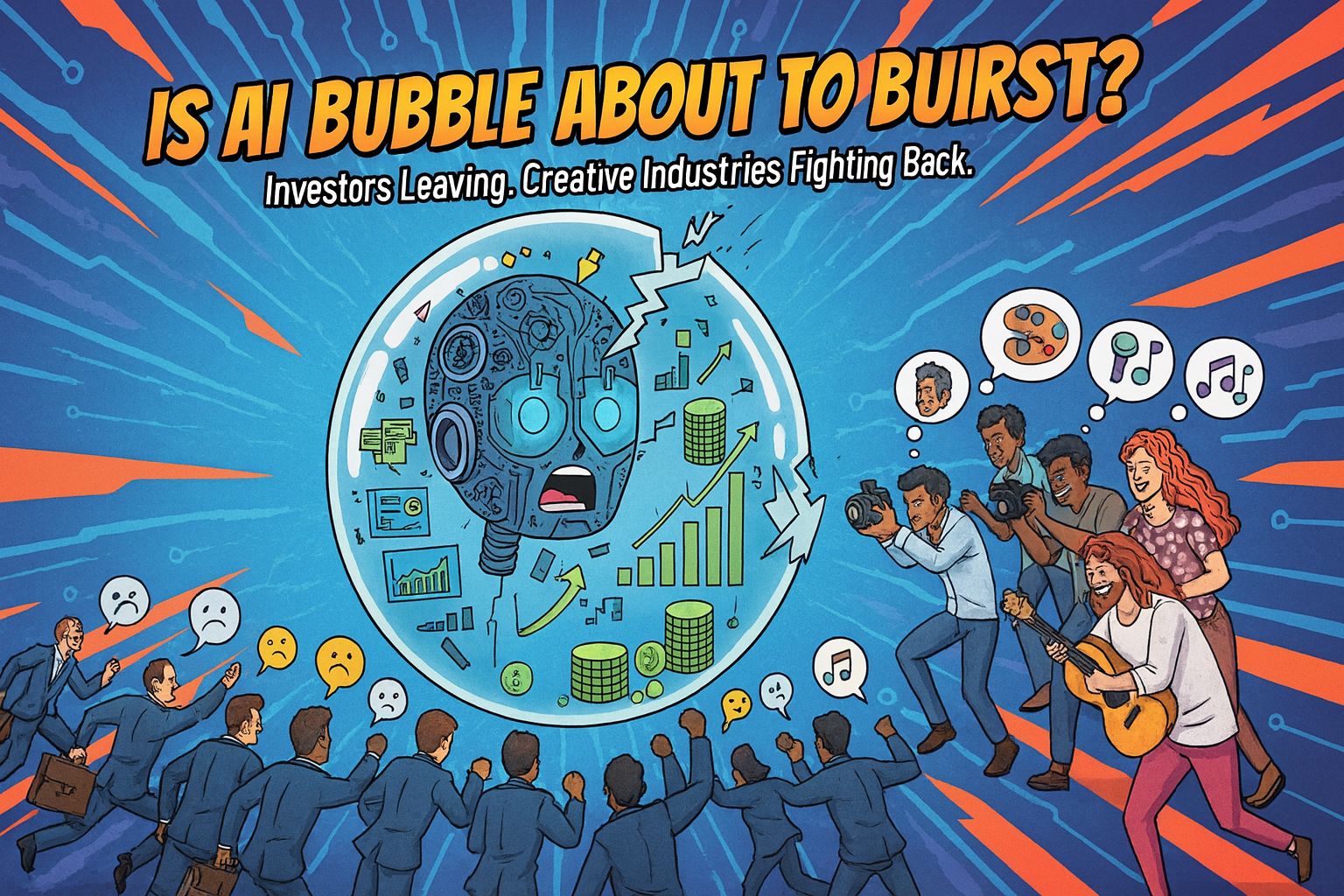Hey {{first_name | there}},
Big investors are quietly selling their AI stocks.
Peter Thiel dumped his Nvidia shares. SoftBank's CEO exited completely. Michael Burry was betting against Nvidia with over $1 billion before shutting down his fund.
These are the same people who got rich riding the AI wave up. Now they're cashing out.
So what do they know that the market doesn't?
Let's talk about what's actually happening.
The Math Stopped Making Sense
OpenAI is valued at $500 billion. Their expected revenue this year? Less than $5 billion.
That means investors are paying 100 times revenue for a company that still isn't profitable.
A former OpenAI executive started a new AI company less than a year ago. She's already raising money at a $50 billion valuation. The company barely exists; they don’t even have a proper product yet.
Meanwhile, there's $1.4 trillion in committed investments floating around AI deals. Most of it chasing companies with little to no revenue.
This is what bubbles look like before they pop.
The Accounting Trick Nobody's Talking About
Michael Burry spotted something interesting before he exited. He claims big tech companies are inflating their profits through accounting tricks.
Here's how it works: Companies buy AI servers and chips that become outdated in 2-3 years. But they're recording them on their books as lasting 5-6 years.
Why does that matter? It spreads out the cost over more years, which makes current profits look bigger than they actually are.
Burry ran the numbers. He estimates that between 2026-2028, companies like Meta, Oracle, Google, Microsoft, and Amazon will understate their actual costs by $176 billion.
By 2028, Oracle's real earnings could be 27% lower than what they're reporting. Meta's could be 21% lower.
If he's right, these companies aren't as profitable as their stock prices suggest. And when the market figures that out, the correction will be brutal.
Google's CEO Just Said No Company Is Safe
Google's CEO basically admitted there's a problem. Sundar Pichai told BBC there's "irrationality" in the AI boom. He said if the bubble bursts, "no company is going to be immune, including us."
His company's stock doubled in seven months to $3.5 trillion. And even he's warning that nobody's safe.
Creative Industries Are Drawing Lines
Two award-winning authors in New Zealand just got disqualified from the country's top literary prize. Not because of their writing. Because AI was used in their book cover designs.
The Ockham Book Awards updated their guidelines in August to ban AI use. The publisher pointed out that by August, all submitted book covers were already designed. Too late to comply.
Both authors had no idea AI was used on their covers.
The pattern: creative fields are rejecting AI not because it doesn't work, but because accepting it threatens the foundation of their industries.
So Does That Mean the Bubble Is About to Pop?
Probably.
Pichai compared it to the internet bubble. In 2000, the dot-com crash wiped out trillions. Most internet companies died. But the internet still changed everything.
The companies that survived, Amazon and Google, became the most valuable in the world.
AI will follow the same path. Massive hype. Inflated valuations. Inevitable crash. Then the real transformation begins.
The difference is timing. When big investors start exiting and CEOs of trillion-dollar companies are warning that nobody's safe, the crash is probably closer than most people think.
Where the Real Opportunities Are
If you're thinking about investing in AI: Stop chasing hype. Companies valued at 100x revenue with no profits are gambles, not investments. Look for companies with real business models. Google has actual revenue supporting their AI development. Most AI startups don't.
If you're building AI tools: Don't build products that replace human creativity in fields that value authenticity. The New Zealand book prize ban is the start, not the end. Build tools that make human work better, not obsolete.
If you work at a tech company: The accounting games Burry identified work until they don't. When the bubble pops, companies with real sustainable businesses survive. Companies built on inflated metrics don't. Make sure you're at the former.
If you're in a creative field: Institutions are starting to protect human creators. Use this time to establish yourself before the market floods with AI content. The backlash is growing, which means there's value in being provably human.
Position yourself for what happens after, not what's happening now.
- AP
PS: If you want to discuss this stuff with other AI enthusiasts, we've got a community you can join here. We're also having a meetup on November 22nd, 2025. Come talk through the implications with like-minded people who are watching this space closely.
Startups who switch to Intercom can save up to $12,000/year
Startups who read beehiiv can receive a 90% discount on Intercom's AI-first customer service platform, plus Fin—the #1 AI agent for customer service—free for a full year.
That's like having a full-time human support agent at no cost.
What’s included?
6 Advanced Seats
Fin Copilot for free
300 Fin Resolutions per month
Who’s eligible?
Intercom’s program is for high-growth, high-potential companies that are:
Up to series A (including A)
Currently not an Intercom customer
Up to 15 employees


